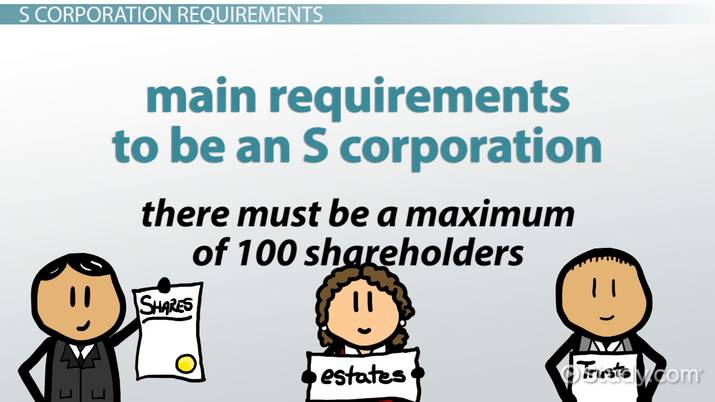Tax Benefits of S Corporation: Maximizing Your Business Potential
When it comes to choosing the right business structure, S Corporations (S Corps) have gained popularity among entrepreneurs for their numerous tax benefits. Understanding these advantages can help you make an informed decision and optimize your business’s financial potential. In this article, we will delve into the tax benefits of an S Corp and how it can give your business a competitive edge.
Pass-Through Taxation
One of the most significant advantages of an S Corp is its pass-through taxation feature. Unlike a C Corporation, where the business is taxed separately from its owners, an S Corp allows profits and losses to pass through to the shareholders’ per returns. This means that the S Corp itself does not pay federal income taxes.
By avoiding double taxation, S Corps can potentially save business owners a significant amount of money. The profits are only taxed at the individual shareholder’s level, typically at a lower rate than corporate tax rates. This tax structure can result in substantial tax savings, especially for small business owners.
Self-Employment Tax Savings
Another advantage of an S Corp is the potential to save on self-employment taxes. Unlike sole proprietorships or partnerships, where all business income is subject to self-employment taxes, S Corps allows business owners to split their income into two parts: salary and distributions.
The salary portion is subject to self-employment taxes, while the distributions are not. By reasonably allocating income between these two categories, S Corp owners can reduce their self-employment tax liability. However, it is essential to ensure that the salary portion is reasonable and in line with industry standards to avoid potential IRS scrutiny.
Deductible Business Expenses
As an S Corp owner, you can take advantage of various deductible business expenses, which can significantly reduce your taxable income. Common deductible expenses include employee salaries, health insurance premiums, retirement contributions, business travel expenses, and office rent.
By properly documenting and substantiating these expenses, you can maximize your deductions and lower your overall tax liability. However, it is crucial to consult with a tax professional or accountant to ensure compliance with tax regulations and take full advantage of eligible deductions.
Flexibility in Fringe Benefits
S Corps provides greater flexibility in offering fringe benefits to their employees and shareholders. Unlike other business structures, S Corps can provide tax-free fringe benefits such as health insurance, life insurance, retirement plans, and educational assistance.
These fringe benefits not only help attract and retain talented employees but also provide tax advantages for the business. By offering these benefits, S Corps can reduce their taxable income while providing valuable incentives to their workforce.
Estate Planning and Transferability
An S Corp offers greater flexibility in estate planning and transferability of ownership. It allows for seamless transfer of shares to family members or other shareholders, ensuring continuity of the business in case of retirement, disability, or death.
Furthermore, S Corps can facilitate estate planning strategies, such as gifting shares to family members, which can help minimize estate taxes and preserve wealth for future generations.

In summary, choosing an S Corporation as your business structure can provide significant tax benefits that can positively impact your bottom line. The pass-through taxation, self-employment tax savings, deductible business expenses, flexibility in fringe benefits, and estate planning advantages make S Corps an attractive option for many entrepreneurs.
However, it is crucial to consult with a qualified tax professional or accountant to ensure proper compliance with tax laws and regulations. They can guide you through the process of setting up and maintaining an S Corp, maximizing its tax benefits, and helping you achieve long-term financial success.
Frequently Asked Questions – Tax Benefits of S Corporation
Q1: What is an S Corporation?
An S Corporation is a type of business entity that elects to pass corporate income, deductions, and credits through to its shareholders for federal tax purposes.
Q2: What are the tax benefits of forming an S Corporation?
The tax benefits of forming an S Corporation include avoiding double taxation, pass-through taxation, and potential tax savings through deductions and credits.
Q3: How does an S Corporation avoid double taxation?
An S Corporation avoids double taxation by passing its income, deductions, and credits directly to its shareholders, who report them on their income returns.
Q4: Can an S Corporation save me money on self-employment taxes?
Yes, as an S Corporation shareholder, you may be able to reduce your self-employment taxes by paying yourself a reasonable salary and taking the remaining profits as distributions, which are not subject to self-employment taxes.
Q5: Are there any limitations on who can own shares in an S Corporation?
Yes, S Corporations have certain ownership restrictions. For example, only individuals, certain trusts, and estates can be shareholders, and there can’t be more than 100 shareholders.
Q6: Can an S Corporation deduct business expenses?
Yes, an S Corporation can deduct ordinary and necessary business expenses, such as salaries, rent, utilities, and other operating expenses, which can help reduce its taxable income.
Q7: Are there any special tax credits available to S Corporations?
Yes, S Corporations may be eligible for various tax credits, such as the Research and Development (R&D) Tax Credit, which can provide significant tax savings.
Q8: Can an S Corporation carry forward losses?
Yes, S Corporations can carry forward net operating losses (NOLs) to future years, which can offset taxable income and reduce future tax liabilities.
Q9: Are S Corporations subject to state taxes?
Yes, S Corporations are generally subject to state income taxes, but the specific tax requirements vary by state. It’s important to consult with a tax professional familiar with your state’s laws.
Q10: Can an S Corporation convert to another type of entity in the future?
Yes, an S Corporation can convert to another type of entity, such as a C Corporation or LLC, if the business needs or circumstances change. However, the conversion process involves certain tax considerations.




